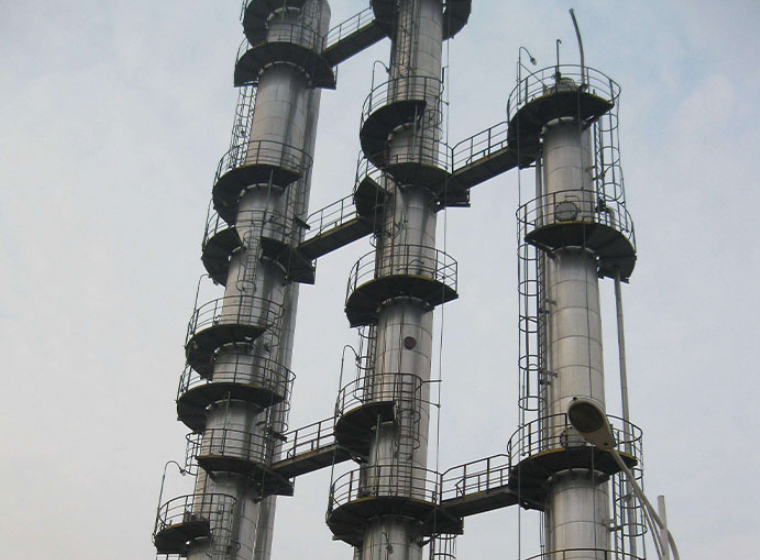Heat pump-assisted distillation is a process that combines traditional distillation techniques with heat pump technology to enhance energy efficiency, reduce energy consumption, and improve overall process sustainability. It offers a more environmentally friendly and economically viable approach to separation processes, particularly in industries where distillation is a fundamental operation, such as the petrochemical, chemical, and food and beverage sectors. This article will provide a detailed explanation of what heat pump-assisted distillation is, how it works, its benefits, and its applications.
Understanding Distillation:
Before delving into heat pump-assisted distillation, it's essential to understand the distillation process itself. Distillation is a widely used separation technique that capitalizes on differences in boiling points to separate components from a mixture. It is commonly employed to separate and purify liquid mixtures into their individual components, such as in the production of petrochemicals, alcoholic beverages, and essential oils.
In a traditional distillation process, a mixture is heated to its boiling point in a distillation column. The vaporized components rise through the column, and as they cool, they condense at different heights within the column. The condensed components are collected as separate fractions, resulting in the desired separation.
What Is Heat Pump-Assisted Distillation?
Heat pump-assisted distillation is a modified distillation process that incorporates a heat pump system to improve energy efficiency. Heat pumps are devices that transfer heat from a source at a lower temperature to a sink at a higher temperature using a thermodynamic cycle. In the context of distillation, a heat pump can recover and recycle heat energy from various parts of the process, reducing the energy input required to achieve separation.
The key component of a heat pump-assisted distillation system is the heat pump itself. This device acts as a heat exchanger and a heat amplifier, allowing heat energy to be extracted from low-temperature streams within the distillation process and pumped into higher-temperature parts of the system. The heat pump operates on a closed-loop cycle, typically using a refrigerant, which undergoes compression, condensation, expansion, and evaporation to transfer heat effectively.
How Heat Pump-Assisted Distillation Works:
The basic components of a heat pump-assisted distillation system include:
1. Reboiler: This is the component where the liquid mixture is heated to create vapor.
2. Distillation Column: The column contains multiple trays or packing material to facilitate the separation of components based on their boiling points.
3. Heat Pump Unit: The heat pump unit consists of a compressor, condenser, evaporator, and an expansion valve. It plays a pivotal role in the process by capturing waste heat and transferring it to the reboiler.

Here's how the heat pump-assisted distillation process works:
1. Vaporization: The liquid mixture is introduced into the reboiler, where it is heated to its boiling point. In a traditional distillation process, a significant amount of energy is required to achieve this phase change.
2. Vapor Transport: The vaporized components rise through the distillation column, and the components with lower boiling points reach higher levels of the column.
3. Condensation: In a conventional distillation setup, the vapor leaving the column is condensed in a condenser. However, in a heat pump-assisted system, the vapor passes through a condenser in the heat pump unit.
4. Heat Recovery: The condenser in the heat pump unit is where the innovative energy-saving aspect comes into play. As the vapor condenses, it releases heat. This heat energy is recovered by the heat pump's refrigeration cycle.
5. Heat Pump Operation: The heat pump's compressor takes the heat from the condenser and compresses the refrigerant, increasing its temperature. The high-temperature refrigerant is then passed through the evaporator, where it releases heat to the reboiler through a heat exchanger.
6. Reboiler Heat Transfer: The heat exchanger in the evaporator of the heat pump transfers the heat from the refrigerant to the reboiler, effectively supplying the required thermal energy for vaporization.
7. Recirculation: The refrigerant, now at a lower temperature, is expanded through an expansion valve, and the cycle repeats. The heat pump continuously recirculates refrigerant, capturing waste heat and transferring it to the reboiler.
This ingenious integration of a heat pump with the distillation process significantly reduces the energy consumption in the reboiler by utilizing waste heat, which may be available from various sources within the plant or process. As a result, the overall energy efficiency of the distillation operation is greatly improved, leading to cost savings and environmental benefits.
Benefits of Heat Pump-Assisted Distillation:
1. Energy Efficiency: The primary advantage of heat pump-assisted distillation is its substantial improvement in energy efficiency. By recovering and reusing waste heat, the process reduces the energy required for vaporization, leading to lower operating costs.
2. Reduced Environmental Impact: As the process consumes less energy, it contributes to a reduced carbon footprint, making it more environmentally friendly.
3. Operational Cost Savings: Lower energy consumption translates to cost savings, which is a significant advantage for industries with energy-intensive distillation processes.
4. Process Integration: Heat pump-assisted distillation can be integrated into existing distillation units with relative ease, minimizing the need for extensive modifications or new capital investments.
5. Consistency and Control: The process offers better control over distillation conditions, leading to improved product quality and consistency.
6. Waste Heat Utilization: Heat pump-assisted distillation allows for the utilization of waste heat from other processes, making it an efficient way to maximize available resources.
7. Flexibility: It can be adapted to a wide range of distillation processes, from simple batch distillations to complex continuous operations.
8. Regulatory Compliance: In industries with strict emissions regulations, heat pump-assisted distillation can help meet environmental compliance standards.
Applications Across Industries
The diverse applications of heat pump assisted distillation span across multiple industries, bringing transformative changes to the way they operate.
1. Chemical Industry
In the chemical sector, this technology is widely employed to produce high-purity solvents, acids, and other chemical products. The ability to control temperature precisely ensures the quality and purity of the end product.
2. Pharmaceutical Industry
The pharmaceutical industry relies on heat pump assisted distillation to separate and purify active pharmaceutical ingredients (APIs). This ensures that medications are of the highest quality and meet stringent regulatory standards.
3. Food and Beverage Industry
In the food and beverage sector, this method is used to refine and purify various products, including alcoholic beverages and essential oils, providing consumers with high-quality goods.
4. Petrochemical Industry
Heat pump assisted distillation is instrumental in the petrochemical industry for the separation of hydrocarbons, providing a more sustainable and cost-effective solution.
Conclusion
Heat pump-assisted distillation is a technology that combines traditional distillation processes with heat pump systems to significantly enhance energy efficiency, reduce operational costs, and lower the environmental impact. It is a promising solution for industries that rely on distillation as a core separation technique and seek to improve their sustainability and energy efficiency. Proper design, integration, and maintenance are essential to realize the full potential of this innovative approach to distillation.
















